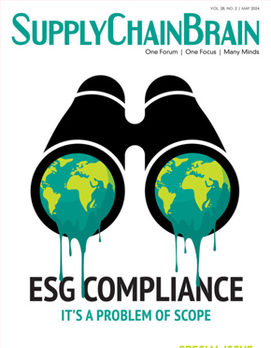
As consumers become more aware of how their buying decisions impact the environment, they’re asking online retailers for more sustainable deliveries. Retailers in turn are challenging their last-mile carriers to create more sustainable delivery options for their customers.
In response, national carriers have kicked off highly publicized initiatives to reduce their carbon footprints by 2035 or 2040, primarily through fleet electrification. In the long run, that’s a good idea, but these are massive projects on aggressive timelines, and they don’t address the immediate need to make deliveries more sustainable today.
There are, however, things that can be done with available technology to reduce the carbon footprint of e-commerce deliveries while we’re waiting for those electric vehicles to come online.
The Challenge of Residential Delivery
The basic delivery model looks something like this: Packages travel in bulk on large trucks from a shipper’s warehouse to a carrier’s sortation or distribution hub. At the hub, the carrier breaks bulk and loads individual packages into smaller vehicles for final delivery to end consumers.
Residential delivery presents two critical elements that change the dynamic of this process. First, the packages are generally smaller than B2B parcels. Second, there are more delivery locations — B2B deliveries often drop several packages at a single stop, while residential deliveries are almost exclusively single stop, single drop.
This creates efficiency challenges. With smaller packages, the capacity of legacy delivery vehicles can be underutilized. The constraining factor becomes the number of deliveries a driver can complete on shift, not the volumetric capacity of the vehicle. With a single-stop, single-drop model, a driver is able to deliver fewer packages per shift. This new reality is taking a bite out of carrier margins, and carriers are responding with residential surcharges.
Every gallon of fuel burned delivering packages creates 19.4 pounds of CO2. That’s basic chemistry, and it’s true whether the vehicle is a 53-foot truck, delivery box truck, SUV or small sedan. To reduce the amount of CO2 created, we need to operate more efficiently and burn less fuel. How do we do that? One way is to shorten the last mile.
Move Packages Closer to End Consumers
On a per-package basis, the linehaul is the most environmentally friendly part of a package's journey. That might seem counterintuitive, given that the package is traveling on a 53-foot truck that gets 6.5 mpg, but the fuel consumption and CO2 creation are spread across hundreds or thousands of packages. When we break bulk and load packages onto the delivery truck, we lose that volume advantage.
Our industry tends to break bulk in large suburban distribution hubs and then load packages onto delivery trucks that can travel many miles to reach dense urban delivery zones. What if we could move the delivery hub closer to the end consumer?
It turns out we can. We call these micro hubs. A micro hub could be a smaller facility or even a parking lot located near dense urban delivery routes. It can be located anywhere you can park a truck, and provides a base where last-mile drivers can load their vehicles. Instead of breaking bulk in the large distribution hub, we maintain the advantages of bulk transport (lower fuel use and CO2 creation per package) while bringing packages into the delivery zone.
The U.S. Postal Service already does this to some degree — every big city has multiple post offices— but the concept can be taken to a much more strategic level. Micro hubs are portable, can be spun up or down as driven by demand, and can create additional opportunities for carriers leveraging the gig economy.
A New Generation of Carriers
A new generation of last-mile carriers is tapping into the gig economy for labor and vehicles. Gig drivers bring their own vehicles, and while these vehicles aren’t designed specifically for delivery, their fuel efficiency on average is 2.5 times that of the standard box truck (25.7 mpg vs. 10 mpg). Aside from the obvious advantage of vehicle fuel efficiency, the gig model delivers additional benefits, especially when working with small B2C packages.
When you have lots of different vehicle types to choose from, vehicle-agnostic dynamic routing algorithms can create the most efficient routing, then match the load to the best available vehicle. Not only is the smaller vehicle burning less fuel, but it’s also using fuel more efficiently because of higher utilization of the available space in the vehicle.
In addition, using dynamic routing algorithms and strategic positioning of micro hubs, carriers can intentionally position and structure routes around the lifestyles of gig drivers. Routes can be moved into the “backyards” of drivers so they can pick up and complete routes near their homes. Drivers could even pick up a route on their way home from work and drop off packages along the route they were already taking to get home.
With these changes to the network and delivery model in place, it becomes much easier to deploy the best vehicle or technology for a given package load. That might be a sedan, an SUV, hybrid or e-bike. At some point when electric vehicles are more affordable and readily available, it might be an EV. If a carrier’s operating model and routing software are vehicle-agnostic, it’s much easier to adapt to the next new technology on the fly.
The more sustainable last mile will be driven by the carrier that right-sizes volumetric capacity to drive utilization and reduce fuel consumption. A new delivery model that relies on micro hubs and vehicle-agnostic routing technology to expand the purpose and utilization of existing assets allows carriers to deliver on the promise of sustainability.
This can be done today, not 10-20 years from now.
Adam Bryant is chief executive officer of AxleHire.




.jpg?height=100&t=1715228265&width=150)


